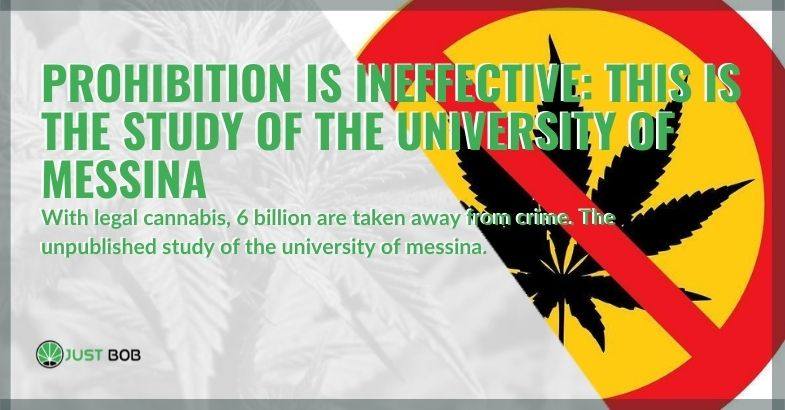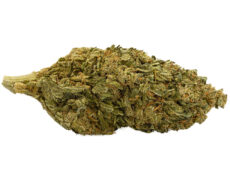Modified on: 19/04/2024
WITH LEGAL CANNABIS, 6 BILLION ARE TAKEN AWAY FROM CRIME: THAT’S WHAT THE STUDY OF THE UNIVERSITY OF MESSINA FOUND OUT!
The term prohibition refers to a particular ideological and legislative orientation that prohibits the use of certain substances based on their presumed or proven dangerousness.
It is a limitation of individual freedom justified by the idea that states have a duty to protect civil society and the health of their citizens.
-
 SMALL & BIG
SMALL & BIGBUBBLEGUM
Starting from: 1,25CHF/gIndoor | CBD – CBDA <22%
Grams3 5 10 20 50 100 -


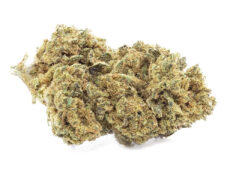
DO SI DOS
Starting from: 2,00CHF/gIndoor | CBD – CBDA < 19%
Grams3 5 10 20 50 100 -


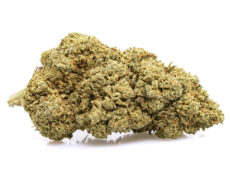
ROYAL GG#4
Starting from: 2,30CHF/gIndoor | CBD – CBDA < 40%
Grams3 5 10 20 50 100 -


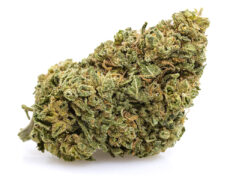
GORILLA GLUE
Starting from: 2,90CHF/gIndoor | CBD – CBDA < 20%
Grams3 5 10 20 50 100
History of prohibition
Prohibition began in the United States in 1919, during a growing moralism that culminated in the founding of the “Sobriety Societies”, religious groups characterized by deep-seated fundamentalism.
According to these groups, the causes of the conspicuous social unrest in those years were mainly to be found in alcohol. For this reason, in January 1919, the Federal Government of the United States ratified, using the 18th Amendment, the law whereby “the manufacture, sale, and transportation of alcohol are prohibited”.
Predictably, the majority of US citizens did not fall in line with the newly enacted law, and many found themselves in “speakeasies”, “speak easy bars” where alcohol was served.
However, the effects of prohibition were not limited to the emergence of speakeasies. The phenomenon of ‘gangsterism’ arose during this period, with the smuggling of alcohol. Driven by discontent, unrest and gangsterism, the government ended Prohibition 14 years after the law was passed in 1933.
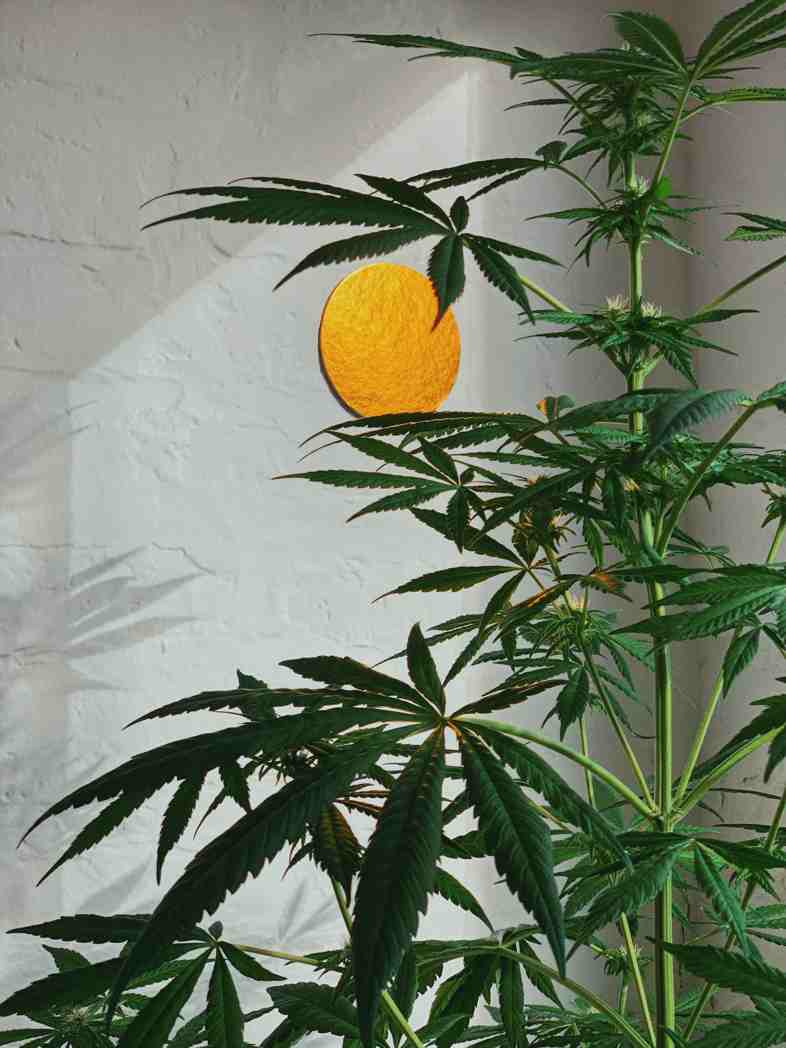

The demonization of Cannabis: the Marijuana Tax Act
Was prohibition over? For liquor certainly, but soon another target was targeted: Cannabis sativa (L., 1785).
On 14 June 1937, President Roosevelt signed the Marijuana Tax Act, enacted by the US Congress, which effectively banned the cultivation of any hemp, even for medicinal purposes.
Behind the cannabis prohibition campaign were economic interests: it is now well known that hemp produces high-quality fibers used for textiles and paper.
During the Second World War, the famous publishing/paper company Hearst had just made considerable investments in tree paper and became the most prominent supporter, through its newspapers, of the anti-hemp campaign. Alarmist and obscurantist headlines often appeared in Hearst newspapers:
“Marijuana is the shortest road to the insane asylum, smoke Marijuana for a month, and your brain will be nothing more than a repository of hideous specters. Hashish creates a murderer who kills for the pleasure of killing.”
“THREE-QUARTERS OF CRIMES IN THIS COUNTRY ARE CAUSED BY MARIJUANA.”
In essence, Marijuana was accused of being the number one cause of violence among illegal immigrants, driving people crazy and corrupting teenagers.
The University of Messina study
History teaches us that the easiest word to associate with prohibition is ‘failure’, and the University of Messina has proved it.
Two new studies on the economic perspectives and legal implications of cannabis legalization were presented during the webinar “Cannabis? Better to talk about it” — organized by the Department of Cognitive, Psychological, Pedagogical Sciences and Cultural Studies — together with the Meglio Legale campaign — legalizing Cannabis would benefit the Italian state and citizens in many ways.
The work was presented by Prof. Ferdinando Ofria, professor of Economic Policy, and Piero David, researcher of Applied Economics; Prof. Ofria said:
“The regulation of the cannabis trade leads to a limitation and correction of the phenomenon. Firstly, it ensures an improvement in the quality of the product — currently, the sale of Cannabis is in the hands of criminals — so there is no control. Second, the product may contain harmful substances such as lead (often added to increase weight) in many cases. Third, this market can increase tax revenue through a legalization process. Finally, as with cigarettes, there will be a large amount of money coming in through taxes. Our study shows up to 6 billion additional tax revenues for the state from organized crime.
The limits of prohibition
The limits of prohibitionism, which paradoxically tends to increase the consumption of the prohibited substance by citizens (remember the use and smuggling of liquor in America in the 1920s), are well known, and economist Piero David of the University of Messina reiterates this:
“An analysis of cannabis consumption in our country shows that it is the most widespread substance on the illegal market. It is evident not only from consumer surveys, but also from the place of the substance in law enforcement actions: 58% of anti-drug operations are for Cannabis, which accounts for 96% of the quantities seized”.
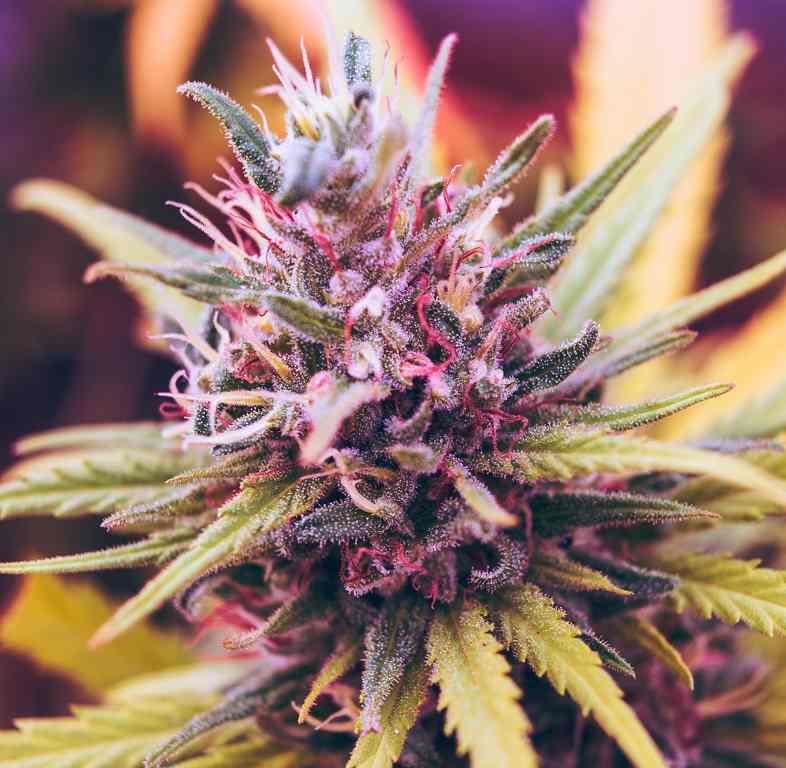

Benefits of legalization
Legalization would bring more tax revenue; Prof. David explains:
Prof. David explains: “One could think of a tax rate similar to that used for tobacco, which is 75% of the sale price, or similar to that for alcohol (35%), depending on the desired displacement effect on the illegal cannabis market. With a rate similar to tobacco, there would be more tax revenue, but the level of crime would still be high because the price of the legal substance would be higher than the black market price”.
He concluded:
“Taking the Colorado experience as an example and projecting the data on the Italian population, (Colorado 5.6 million inhabitants/Italy, 60.4 million); with a total tax burden of 32% (excise, state and local taxes), the revenue for a population of 60.4 million inhabitants would be 3.26 billion euros and a turnover of more than 10 billion euros, a value in line with that estimated based on seizures”.
Read also: Are trichomes not maturing? How to identify the causes and what to do
To conclude
The University of Messina has laid the foundations for a breakthrough in the legalization of Sativa hemp, dismantling the theory of prohibitionism and highlighting the undeniable advantages of security and tax revenue for our country.
We hope that the research will continue and lead us towards a greater awareness of this exceptional plant.
Meanwhile, you can take a look at the products such as pre rolled CBD, CBD cannabis and CBD oil Sensitiva that we sell in our JustBob online shop and get an idea of what Cannabis is.

